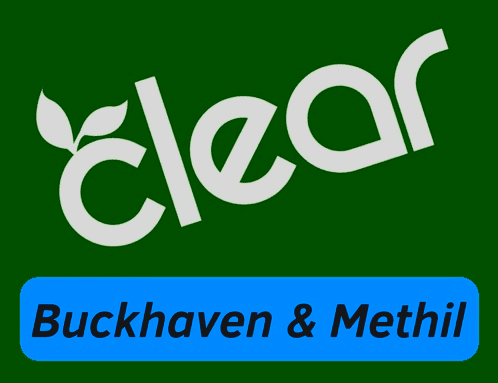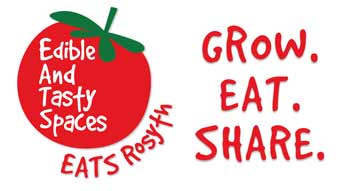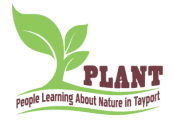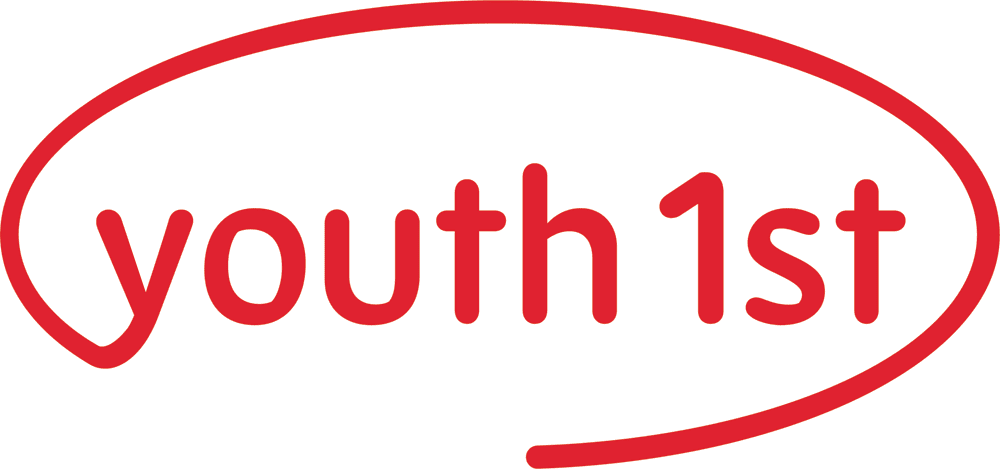Fife College is a partner in the Climate Action Fife project. In this blog the team share how their activities are becoming greener.
Becoming Sustainable
Here at Fife College Students’ Association (FCSA) we have spent the last few years constantly working towards fully sustainable working practices. We have been paper-free since 2019 and all essential documents are provided online, for staff members and students. We have been meeting virtually since before the pandemic began to cut down on unnecessary travel between Fife College campuses, and when we do have to travel between campuses, we use the College’s fleet of electric cars. Since we returned the FCSA has continued with a hybrid delivery of events and meetings to stay on track with our sustainability goals.


The FCSA uniforms are ethically sourced and made from sustainable and recycled materials as are any prizes or promotional items offered during FCSA events.
Events and campaigns
We frequently share and get involved in sustainability events and advice via social media and collaborate with student groups across the country, working closely with City of Glasgow Colleges Down to Earth Society. Over the past year, this has been the most effective way to raise awareness of our sustainability practices.
 Our team got involved with Second-hand September, which is a month to encourage everyone to make more sustainable clothing choices and shop second-hand. We continue to share tips and tricks on social media and in our student channels throughout the year, corresponding with various social media themed days and the FCSA’s own themed calendar. For example, the March Minimalism challenge, which promotes owning less “stuff”.
Our team got involved with Second-hand September, which is a month to encourage everyone to make more sustainable clothing choices and shop second-hand. We continue to share tips and tricks on social media and in our student channels throughout the year, corresponding with various social media themed days and the FCSA’s own themed calendar. For example, the March Minimalism challenge, which promotes owning less “stuff”.

Bike scheme
In 2020 we acquired funding from the Energy Savings Trust to purchase 8 electric bikes, which has since been doubled by the College. A fleet of 16 e-bikes have just launched and are available for staff and students to rent as part of our “On Yer Bike” scheme. This scheme is to encourage staff students to make a more environmentally conscious choice and cycle to work/College. The aim is to make Active Travel feel achievable and exciting and make it the preferred choice for travel. All 16 have been rented out within the first week with a healthy waiting list.
Working with others
We frequently work collaboratively with other organisations and Student’s Associations on green projects and discussions about sustainability. Last year we attended the Good Food Nation Bill discussions with Climate Action Fife and other local organisations and participated in Climate Action Fife forum discussions. Since then we have been collaborating with the College catering and Aramark to address food wastage within the College. We are implementing a “Too Good to Go” scheme which will reduce the amount of food wasted by the College on a day-to-day basis.
 The FCSA runs the Green Club, a student society about sustainability and making choices that have a positive impact on our planet. The Green Club has its own Facebook page where we share sustainability advice a lot more frequently, and a channel on our Digital Office in Teams where students can open up discussions about sustainability.
The FCSA runs the Green Club, a student society about sustainability and making choices that have a positive impact on our planet. The Green Club has its own Facebook page where we share sustainability advice a lot more frequently, and a channel on our Digital Office in Teams where students can open up discussions about sustainability.
Sustainability continues to be a priority for the FCSA and we are taking the necessary measures to ensure we are acting as sustainably as we possibly can in every area of the College. Follow along for more updates from the FCSA and hear all about their new community action club.
Blog by the FCSA team – Find out more
The Climate Action Fife Small Grants Fund offered £500 to enable Fife organisations to engage their communities in action on the climate emergency. The funding required projects to target people who were not already engaged in the climate agenda, should increase knowledge and awareness of the climate emergency and build skills and confidence to take climate action. Ten projects were funded to run activities over Summer 2021. You can read a summary of their activities below.
Anstruther Improvement Association
Anstruther Improvement Association introduced their community to the idea of a circular economy, where old products or their parts are reused. At two workshops, participants discussed the circular economy before learning new upcycling skills, turning waste material and clothing into cutlery or mobile phone cases.
What the organisers said:
Our community increased their knowledge about the circular economy in Scotland. They considered the life cycle of everyday items and what happens to products they purchase after they are no longer usable, such as mobile phones, clothing, bags or toys. They learned practical skills to creatively re-use and upcycle readily available materials which would usually go to waste. The workshops prompted discussion about the climate emergency ,COP26 and provided the opportunity to discuss further ideas, ask the facilitators questions and voice their views.
What the participants said:
What’s the best thing about the circular economy?
- It helps the environment
- Anyone can do it!
- New uses and less waste can only be good for the planet
- That it is re-useable and eco friendly
- Love the circular economy ideas
- Making something new from something old
- I didn’t realise you could buy a different kind of mobile phone (with replaceable parts)’
Auchtermuchty Community Centre
Auchtermuchty Community Centre ran a series of event covering a range of climate issues. They ran a bike fix-it session and an e-bike demonstration; an electric vehicle showcase and discussion; a visit to Ardross Farm to see regenerative farming in action; a climate-friendly cooking demonstration; and climate-friendly home visits to see renewable installations.
What the organisers said:
Ultimately my goal was to find some like-minded people to plan future activities with, and although it was quite a lot of work to achieve, it was successful. These activities have brought together probably about 20 people in Muchty (a village of about 2000) who didn’t know each other before, and would now like to be involved in local climate action. We already have a plan for some apple pressing and a trip to another local farm. Outside experts (as originally planned) don’t help at the stage we are at. I was hugely helped by having found a local expert in engaging the public with sustainability issues, who is herself a sustainability officer outside Fife. These events cost pennies, and arguably funding them would have been easily within village budgets. However, having external funding somehow provided a legitimacy that allowed us to advertise them with confidence.
Broomhill Community Garden Kids Club
Broomhill Community Garden Kids Club introduced their kids club to climate-friendly food in their “plant to plate” holiday club. The children were taken through the journey from planting to growing; then picking and cooking, and -the best bit –eating their own food. The children learnt about food miles; about buying locally produced food; the environmental and health benefits of growing your own; and even picked up some cooking skills. The project allowed the whole family to gain the know-how to move to a healthier, more sustainable lifestyle and they were also able to discover the joy of growing their own fruit and vegetables.
What the organisers said:
Our project succeeded in raising awareness of locally grown produce and spaces available locally to take part in grow-your-own food production. We learned that the children who attended our sessions were actively engaged and excited about harvesting their own food and eating it fresh from the source. The take-home produce that the children picked themselves increased their knowledge of the variety of fruits and vegetables that can be grown in our local environment and inspired continued discussion during the course of cooking and eating it at home. The number of families regularly attending our sessions has increased over the course of the summer, thus increasing the number of families involved in taking action locally by growing and eating fresh produce.
The Cottage Family Centre
The Cottage Family Centre introduced their community to the benefits of locally grown food at their weekly family session. Families learnt that growing your own food is easier than you think and is a great way to save money and the planet. The project demonstrated that you can eat well, whilst keeping to a budget and promoted waste reduction through composting and repurposing of pallet wood as garden furniture. Whole families learnt to grow and cook together and discussed the climate benefits of locally produced food. The children were encouraged to taste different fruits and vegetables, cooked using climate-friendly methods.
What the organisers said:
Climate change feels like it can be challenging to talk about and bring up naturally in conversation with others. But over the weeks during this group, it became easier for me as the group facilitator to do this. At the beginning of the session, leader Megan would ask the parents and children some climate questions, usually while watering the plants around the garden. The children enjoyed doing this and were happy to chat away whilst pottering in the garden. Most of the parents were aware of news coverage of climate change and its impacts around the world, finding this scary. It was difficult for us to turn the conversation around to what we as individuals could do, but it is good that the parents recognised that climate change is a big issue that everyone needs tackle.
We have benefitted from applying to the Climate Action Fife fund as the gardening equipment purchased can be used year after year to foster a love for the garden and the environment, and to encourage families to take action to help our planet.
What the participants said:
Always a learning experience at gardening group!
The East Neuk Centre Trust
The East Neuk Centre Trust invited their community fridge visitors to their community garden to teach them how to grow vegetables sustainably and how this can help reduce your carbon footprint, fight the climate crisis and support a more diverse and healthy diet. The group built raised beds and collaborated with Anstruther Allotments Association to plant a range of vegetables. Volunteers attended fortnightly sessions throughout the summer and into September. At time of reporting, they had just harvested their first tomatoes and cucumbers.
What the organisers said:
The group aims to build on the momentum from this project to organise more food based climate projects in conjunction with their community fridge. For example, we would like to offer vegetarian and vegan cooking workshops and to collaborate with a local climate-friendly farm to offer workshops to teach our community about the benefits of buying local.
What the participants said:
These sessions and volunteer jobs helped me deal with my depression. I am on my own and have very few friends or family. During these sessions, it was nice to talk to other people and get to know East Neuk’s community. In addition, I learned how to grow vegetables and how critical healthy soils are for the planet.”
Footprint East Neuk
Footprint East Neuk ran 3 workshops that aimed to engage and inspire members of the Community Councils in East Neuk with the climate emergency, as well as their loal community. The workshops were attended by 56 local people in total
The workshops were:
- How to create a climate-friendly food forest in your garden.
- A woodland walk to learn how trees and woods provide homes for thousands of species (a family-friendly event).
- Regenerative farming and food systems with a focus on how to have a low-carbon BBQ this summer.
A Walk with the Cows’ took place at West Gilston Mains Farm. Participants learned about the regenerative farming techniques in use on the farm, including mob-grazing of cattle, increasing species diversity of pastureland and use of cover crops and direct drilling to improve the health and quality of the soil. Attendees also learned about the capacity of soil to store carbon and how the techniques being employed on the farm will lead to increased carbon capture. Participants were encouraged to think about how their food is produced and how the choices they make when buying food can have a big impact on their own carbon footprint.
What the organisers said:
We felt that everyone who attended learned more about the climate emergency, and also about things that we can do as individuals and as a community to try and tackle it. We hope that Community Council members that attedended will share their experiences at their monthly meetings, thereby increasing awareness of the climate emergency among other members. Also, we are delighted that our MP has shown an interest in tackling the climate emergency, and that information from the workshops may feed back into central government. Feedback from attendees was overwhelmingly positive and several people said that the workshops had been very educational.
K107

K107 ran a series of Climate Action Fife on-air adverts through the summer months. One sharing climate friendly-tips that you could do at home, one shared tips for out-and–about, and the final advert promoted the Big Five For Fife campaign. The local radio station wanted to increase public awareness and education around themes of sustainability. They also wanted to promote Climate Action Fife’s work and challenge the misconception that the climate conference in Glasgow (COP26) was just for world leaders and big business.
You can listen to the Big Five for Fife radio advert below.
St Andrews Environmental Network

St Andrews Environmental Network ran a series of sessions to engage clients of the Foodbank and the Community Café on climate action. The workshops shared tips for reducing energy usage, reducing waste and adopting sustainable travel methods. Paricipants discussed climate actions that they already take and how they could reduce their carbon footprints further. Through the Small Grants Fund, the orgranisers successfully engaged with a group that does not normally discuss climate change. Working towards normalising low carbon living in St Andrews.
Templehall and Torbain United Parish Kirkcaldy

Templehall and Torbain United Parish Kirkcaldy took on plastic waste. They invested in childrens party-ware kit. It is all made from sustainable wheatleaf and can be borrowed for free by the local community. The group were keen to tackle single use party waste, but also wanted to create a resource for their community.
What the organisers said:
The reaction to the party kit has been positive, with lots of people getting in touch. People are surprised that the kit is lent out for free. There seems to be a general feeling that there is too much plastic/paper waste created at childrens parties. However, many people don’t really know how to tackle the problem without creating a lot more work for themselves. The kit seems to be a good way for people to easily achieve this. The community are happy that they are able to reduce their party waste.
Play & Grow Dunfermline – Touch Community Garden
Play & Grow Dunfermline – Touch Community Garden ran a climate change themed litter pick, with a number of education stations along a set route. Attendees leant about climate change, waste and carbon impacts through activities, games and discussion. The families logged the litter they picked and in total collected 13 bags of litter between them. Each household was sent away with a copy of ‘The Lorax’, a Dr Seuss book themed around environmental damage and waste. Organisers hoped that the event would encourage community action and ignite a new passion amongst families to nurture their local environment. They hoped that by providing the children with this creative and engaging way to learn about climate change and waste, it would impact the whole family.
Thank you, well done and round 2
We want to thank all the communities above for their hard work applying for funding, organising and running these events. We were delighted by the creativity and range of topics covered in your projects. In the future, we hope that they will lead on to further climate conversation and action across Fife.
Climate Action Fife have funded a further 3 community organisations to deliver activities in October and November 2021. We look forward to hearing how Bat’s Wood, Kincardine Community Association and Valleyfield Community Club get on with their projects.












